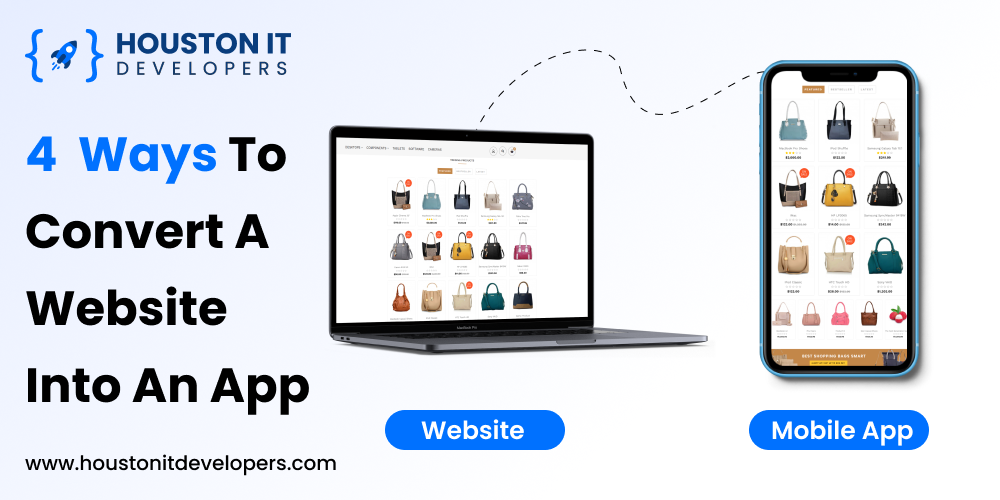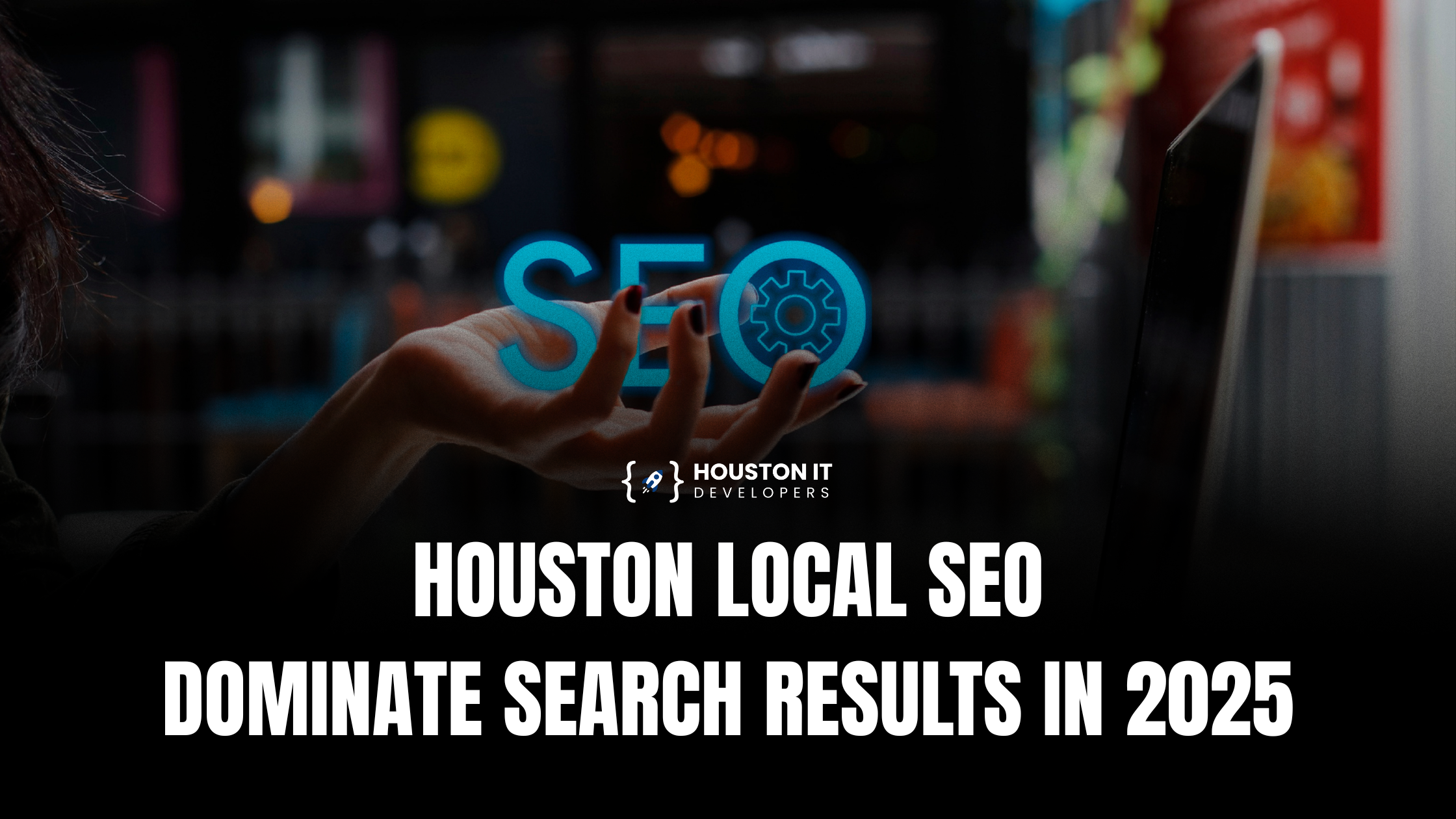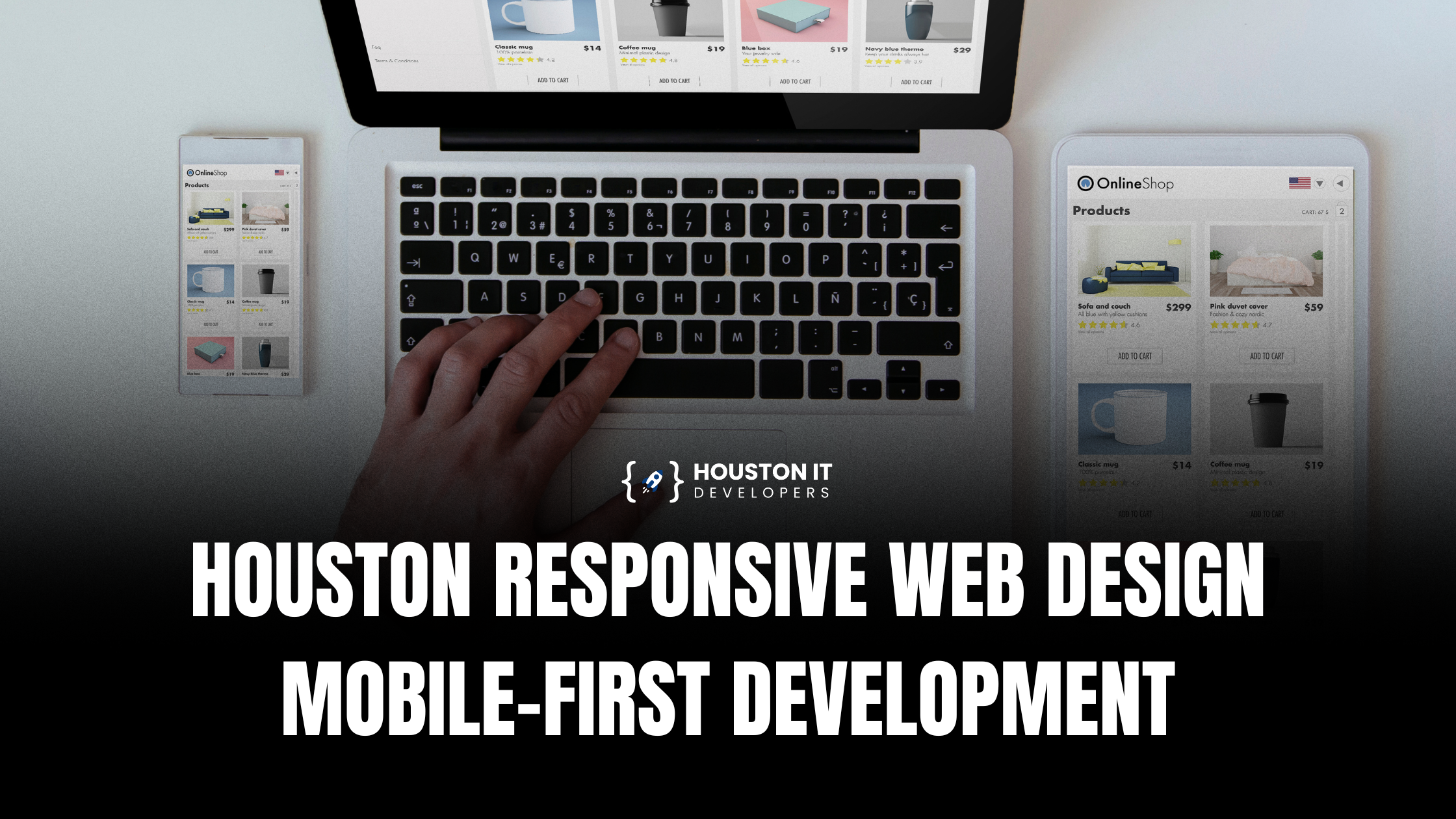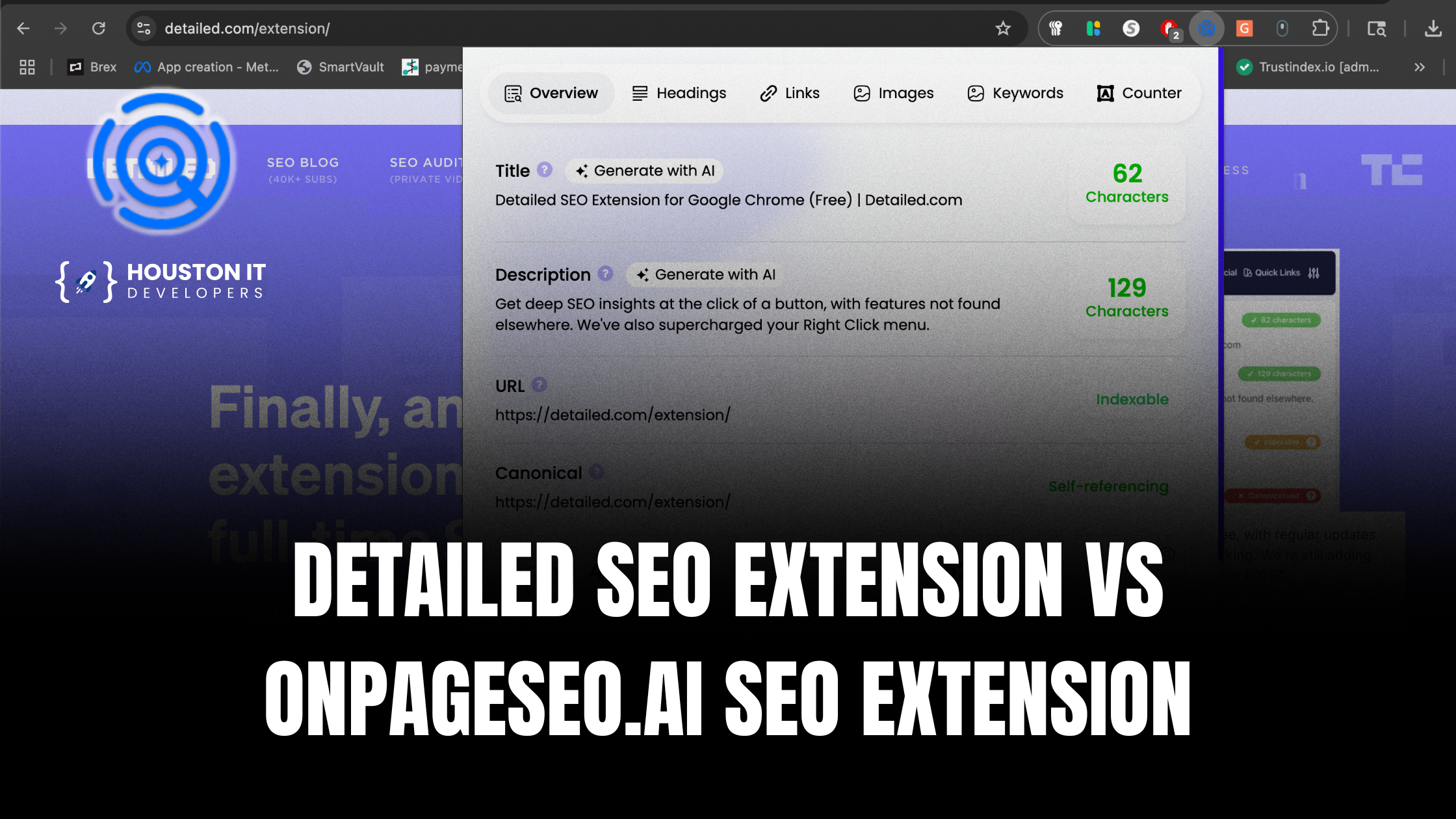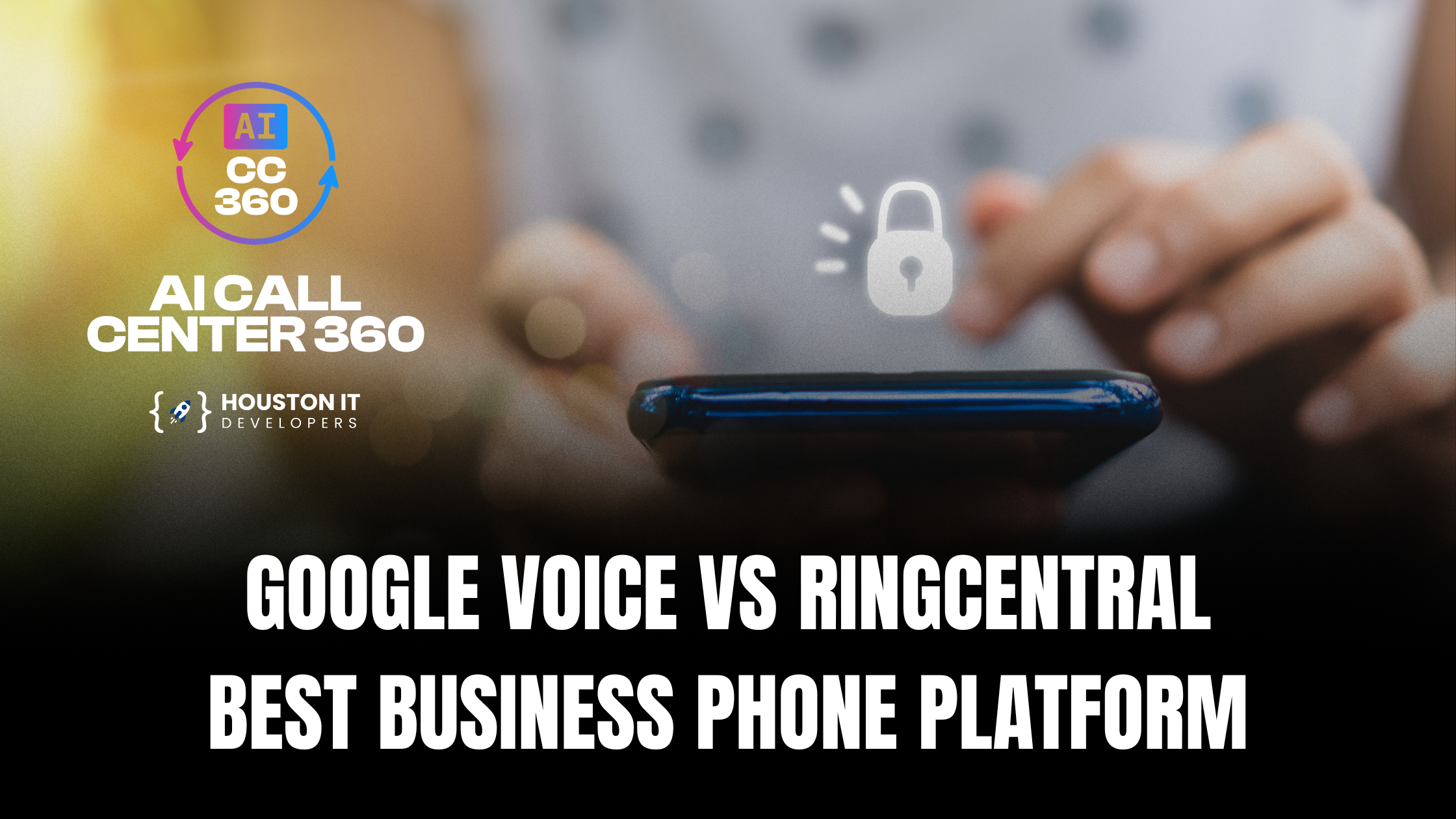Why Converting Your Website to a Mobile App is Crucial in 2024
People are so immersed in their mobile devices today that you cannot imagine an internet ecosystem without them. Businesses are online, and their marketing strategy is incomplete without catering to the majority of the population who shop from their mobile phones.
For businesses having an e-commerce store in the form of a website, the next logical step would be to create a mobile app with engaging features, great UI design, easy navigation, and no-nonsense functionality.
Armed with a mobile app, you can meet user expectations and build more engagement and loyalty. It truly represents infinite online growth opportunities for your business.
An easy option is to convert the existing website into a mobile app. It is fast and more cost-effective than custom mobile app development. But before going there, let’s see the types of mobile apps that can be built.
Progressive Web Apps (PWAs)
Progressive web apps are nothing but an extension of web applications that function as mobile apps. They use service workers and web app manifest in combination with some of the features of modern browsers to give users an experience similar to a native mobile app.
Brands love PWAs because they require no installation, cost less than mobile apps, and are more engaging than websites. Another crucial benefit is that they are discoverable by search engines. So you can work on search engine optimization for your PWA to rank higher in searches, just like websites.
However, there are disadvantages of PWAs. They are Android-centric and are supported to varying degrees by popular browsers such as Google Chrome, Apple Safari, IE, and Microsoft Edge but not by Firefox for desktop. They are not supported by all device hardware and software. Also, they do not show up in app store search results.
Native Mobile Apps
Go for a native app if you have a complex app or a gaming app to build. The benefit of native apps is that they provide maximum performance and better speed. They offer extensive support for in-built device features such as GPS, fingerprint scan, and camera. Moreover, the UI design can be optimized for each platform.
Android apps are built with Java and Kotlin, while iOS apps require Objective-C and Swift programming. The only drawback is that you need a separate code for iOS and Android. So, the cost of building a native app is always higher than building a hybrid app. Also, it is time-consuming to develop a native app and it may take anywhere between 2-6 months for comprehensive native mobile app development.
But, if you have the budget and time, Houston IT Developers highly recommends that you convert your website into native iOS or Android mobile apps.
Hybrid Mobile Apps
Developing separate mobile apps for Android and iOS means additional resources for app building and maintenance. If you are a startup with budget restraints, you can opt to have a hybrid or a cross-platform mobile app. With this, the same code works for both mobile operating systems. Though not as good as a native app, it still is powerful enough to work convincingly on both platforms. The development of a cross-platform app can be done using a React Native or Ionic framework.
A React Native app works well if your website or web app is built using ReactJS. A website using the ReactJS library for UI design can be easily converted into a React Native mobile app. But it is not suitable for complex mobile app development such as gaming apps. Ionic apps are built using an open-source SDK. It works efficiently with AngularJS and Apache Cordova and your website can be easily converted to a mobile app. The disadvantage is that it needs native plugins and is not meant for complex apps.
So, if you opt for cross-platform mobile app development, you can go with either a React Native app or an Ionic app.
Houston IT Developers recommends converting your website into hybrid apps if you want to reach a wider audience rather than a specialized user base. They are great if you don’t require high performance or offline capabilities when you convert your website into an app.
Why You Should Build Your Own App
Building your own app ensures you fully own your data and are not reliant on third-party platforms that may stop supporting your app or start charging much more. When you rely on third-party platforms, you risk losing control over your app’s functionality, data privacy, and user experience. Owning your app gives you complete control over updates, features, and data management, ensuring your business can scale and adapt as needed.
How to Convert a Website into an App?
Before you jump into building a mobile app, think about the structure and components you will need in the app. This way you make sure that you ascertain the expenses and stay within the budget. Create a checklist of UI design, consistency, navigation, and other elements necessary for the audience as opposed to simply creating something extra to look good with no benefit.
Now that you have a good mobile app plan ready, the next step is to convert the website into an app of your desired choice. But how to convert a website into an app? Let’s have a look at the options for it.
1. Hire a Freelancer
Hiring a freelancer will help you to save costs but not necessarily build a great app from your existing website. You can try to hire freelancers from different platforms such as Fiverr, Upwork, or Freelancer. But go through the reviews and look into their sample work before you decide to sign the deal. The disadvantage of hiring freelancers is there is no guarantee of the quality of work and you have to be consistently in touch to ensure that your work gets completed on time.
2. Hire a Mobile App Development Agency
A mobile app development agency like Houston IT Developers can help businesses get optimized benefits in the conversion of their website into an engaging mobile app. The reasons are quite a few:
- A mobile app development agency can offer professional expertise in technology, coding, UI design, and skills.
- They even help in converting websites to mobile apps based on the business marketing strategy.
- They give impetus to search engine optimization (SEO) and app store optimization (ASO) techniques while building the app.
- It offers accountability from app ideation to creation and deployment.
- It offers holistic solutions and businesses can depend on them for every aspect of mobile app development.
Even though the investment may be costlier than hiring a freelancer, it will be worth every penny spent.
3. Using Auto-Converters of E-Commerce Website Platforms
Websites on popular e-commerce building platforms such as Shopify, WordPress, Wix, and others offer plugins or apps which provide an API for converting the online stores into mobile apps. Additionally, they offer a mobile app template that interacts with the API for data exchange and display of products. But the problem with these converted apps is that their UI design and UX doesn’t look convincing. They lack user-friendliness and the functionality is strictly limited to what the converter plugins offer.
Houston IT Developers recommends using these to build a Minimum Viable Product (MVP) to show it to potential investors if you are a startup. You can also use it if you want to test how your audience will engage with a mobile app or want to make sure that it’s something your audience really wants.
If you still want to go with it, you can add extra features to enhance the app functionality by integrating plugins. But you have to pay for these plugins. Hence, it is advisable that you hire an app development agency to convert your website into an app. They will select the necessary plugins from among the thousands and make your app conversion process cost-effective. They will make the best use of auto-converter features to create an engaging app with good UI design, navigation, and maximum functionality.
4. Using a Third-Party App Builder or Converter
Often advertised as a DIY app converter, an app builder is definitely an affordable option for small businesses. These SaaS products are sold on a subscription model and usually have a drag-and-drop editor to add the elements into the mobile layout template. An excellent example of a SaaS website to app converter product is Appy Pie.
But you may still require the help of an app development agency to fine-tune the layout and UI design. A layman might find it difficult to upload the app in the App Store/Play Store to launch it. If it is incomplete or there are data security issues in it, there are chances of it being rejected by the app store. So, you can either go for their premium plan that has customer support staff to guide you through each step or hire the services of an app development agency to do the task for you.
Wrapping Up 4 Ways To Convert A Website Into An App
The choice of a mobile app depends on the business requirements and the time, budget, resources, and marketing strategy you have. Based on these, you can select any option to convert your website into an app. But do consider hiring the services of a reliable app development agency as your partner to complete the app creation until its launch.
Houston IT Developers is a leading app development company with a satisfied clientele from across the globe. We have helped businesses launch their e-commerce journey. Now, it is your turn, and we are with you.
